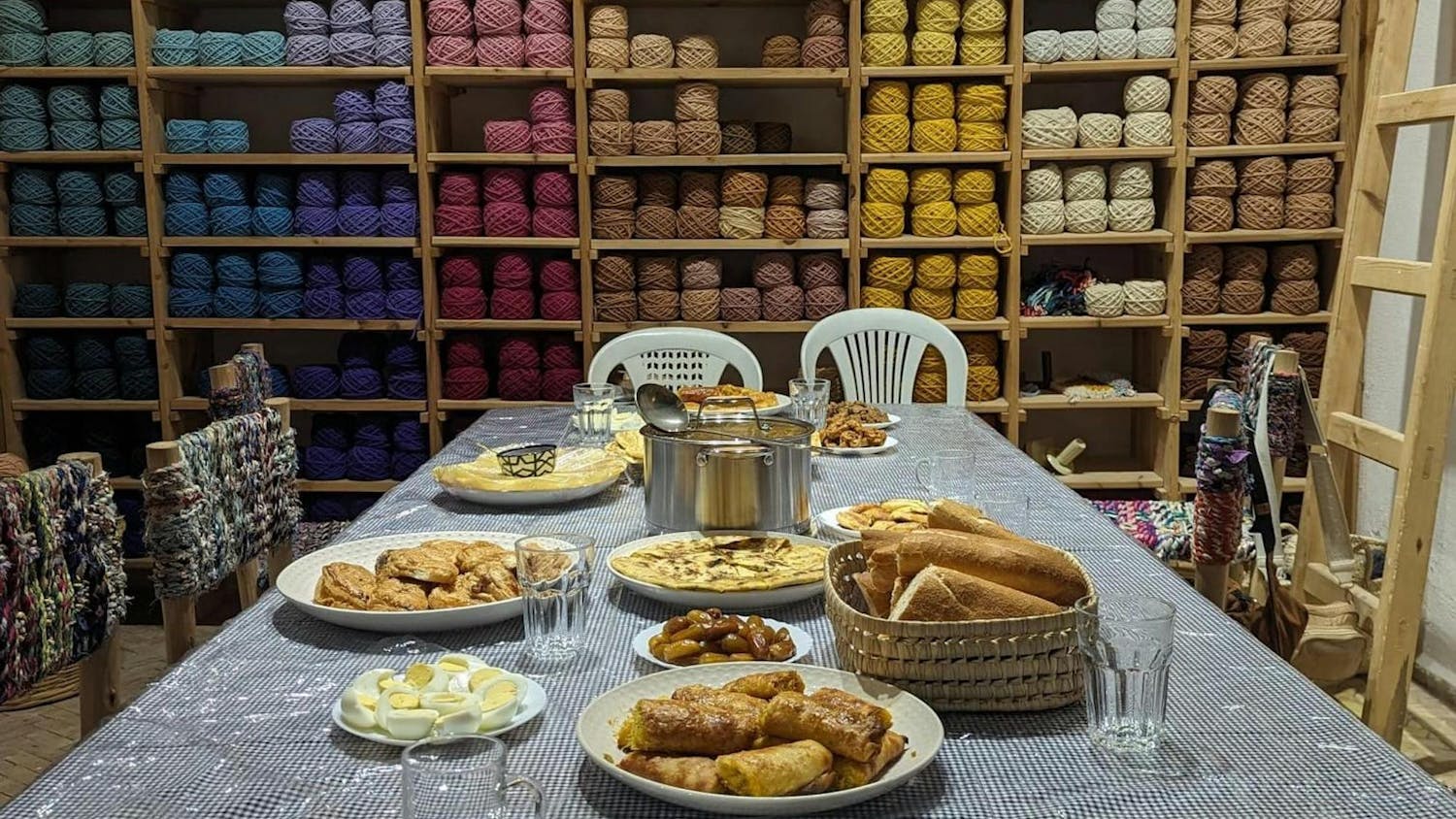This is part one of a three-part series centering the experiences of students who are the only ones from their home countries to be at Tufts.
For many students with an international upbringing, home is often a faraway place. As of last fall, more than 12 percent of the university's total enrollment consists of international students, according to data provided by the Office of Institutional Research and Evaluation.
Within this community, there is a subset of students who are the only representatives of their home countries. According to the International Center,of the 75 countries that undergraduates call home, 27 are represented by only one undergraduate as of this September. While these students contribute significantly to the number of countries represented at Tufts, they only make up 4.8 percent of the current international undergraduate population.
In this series, the Daily features the stories of four such students and their far-flung homes. The interviews revolved around their feelings of displacement, encounters with cultural stereotypes and changing relationships with their homes.
These students do not represent the international community at large; their stories are but among the many diverse experiences of students who have lived or are living abroad. However, what they have to share will still resonate across national, racial and cultural affiliations.
Khaliun Narangerel
Sophomore Khaliun Narangerel is a computer science and economics double major. Her home is in Ulaanbaatar, the capital city of Mongolia. She grew up there as the youngest in her family of five.
Like Narangerel, her siblings went overseas for college — one to China and the other to South Korea. Yet unlike her siblings, she experienced starker differences between her upbringing and college culture that has affected her relationships with her family.
"China and Korea are similar to Mongolia in terms of beliefs and values," she said. "But when I come home from college, where the values are very western ... I just tend to clash with [my family] on a lot of things. I have to adjust my beliefs, or hold back what I want to say."
Narangerel has approached this divergence in beliefs with curiosity and empathy, as she strove to learn more about the views of her peers on campus. She noted LGBTQ issues as an example of a topic that she knew little about before college.
"There are things that you need to learn, and times where you just evaluate the beliefs that you grew up with," she said. "There is a lot of understanding, a lot of learning."
Over the past year, Narangerel has had to overcome her fear of asking the wrong — or too many — questions, in order to learn more about other people and their experiences.
"Even with asking something you don't know, there's some kind of fear and anxiousness associated with it. Am I really supposed to be asking this? Is it just common knowledge, and I'm a really stupid person?" Narangerel said. "No matter what question I ask, if I am genuinely interested and if I really do not know, [people] will just answer it."
Likewise, she finds herself answering many confused questions from others on campus, which often reveal that people have only ever heard of Mongolia for its nomadic culture or its imperial history — if at all. She stressed that cross-cultural understanding must be a two-way process.
"You can't just expect someone from Virginia or Montana to know all these facts about [Mongolia]. I don't know much about their state, so I can't expect them to know about mine," Narangerel said. "It's all just a learning process on both sides."
She neither resents how her presence at Tufts has turned her into a representative of Mongolia, nor desires a formal space — like a student organization — to amplify her voice on Mongolian issues. Instead, she prefers to have informal conversations with others about their homes and their cultures.
"I am in a position of influence, because it's likely that I am the only Mongolian that [others] will ever meet in their lives," Narangerel said. "[But] I don't want to have a club to just talk about Mongolian culture. It's not relevant to a lot of Americans' lives. I just try to have conversations as often as I can, to give them a different perspective of how things go on the other side of the planet."
Many of the conversations that Narangerel has with other international students center on their transition to college and to the U.S., providing mutual support.
"I occasionally have conversations on diversity and what it means to come from a developing nation, or cultural differences between Americans and internationals, with mostly international students," she said. "Our experiences are very similar. That reassures me that I am not the only one going through this transition."
Talking about home can be challenging for Narangerel because despite being familiar, it is so mundane that she cannot find the words to best describe her life back home to others.
"A lot of my friends ask me [what] ... my experiences in Mongolia [were] like, but I don't have any other experiences to compare it to," she said. "I had never been to the U.S. before I came here for college. The things that I have experienced in Mongolia are just my life, I don't know what to make of them."
Despite being bilingual, Narangerel speaks Mongolian to most of her family and friends while she converses in English with those at Tufts. Switching between these two very different languages has not been easy for her, even if she has found comfort and a piece of home in listening to Mongolian songs or reading Mongolian poetry.
"Coming back to campus from Mongolia, for the first few weeks, I struggled with [English]. I can't quite express myself, like I can't really find the words," Narangerel said. "It's the same for when I go back home, I would have trouble speaking Mongolian."
Narangerel sees her identity as having bifurcated into distinct American and Mongolian parts, in the same way that her linguistic abilities have. In each part, she goes by different names, and her interests and activities do not intersect.
"There is this Olivia part of me in the U.S., where I speak English, ... and I have certain things that I do and am interested in. But there is this other part of me that is Khaliun, where I speak Mongolian, I have a family of five and the things I'm interested in back home are different. It's like going between two almost alternate dimensions," she said.
This cultural gulf is felt strongly, even when Narangerel stays in touch with her family over Skype as a way to cure homesickness or seek support from familiar people.
"Sometimes [talking to my family] makes me feel worse, but it's the only thing that I can do. My family is back home, they are comfortable in their own space, but here I am: alone, with no one to talk to, with no one who really understands the cultural background that I come from," she said.
However, Narangerel shares her family's philosophy of trying to embrace this new American environment, even if it can't replace home.
"I don't try to recreate home," Narangerel said. "My parents, they never told me to reach out to fellow Mongolians in Boston. It's just the nomad in me — if you are in a different environment, get used to it and adapt."
More from The Tufts Daily





